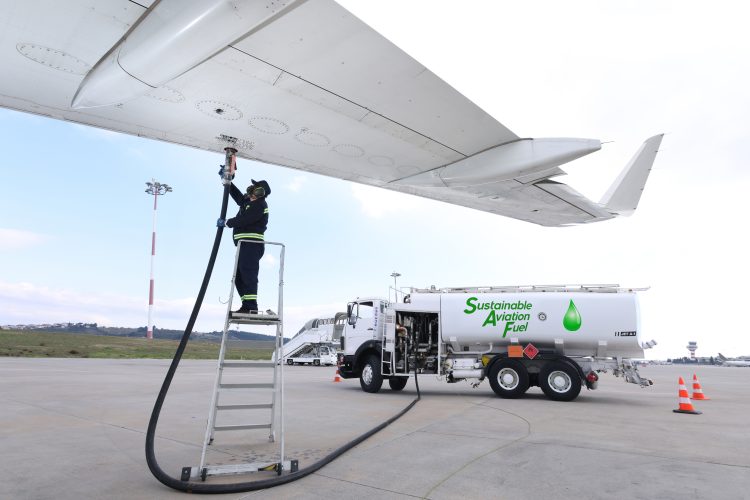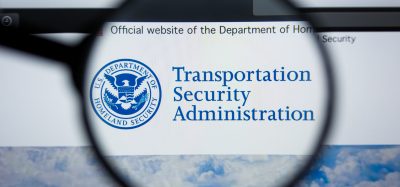IATA reveals SAF production growth in 2024, urges acceleration to meet decarbonisation targets
- Like
- Digg
- Del
- Tumblr
- VKontakte
- Buffer
- Love This
- Odnoklassniki
- Meneame
- Blogger
- Amazon
- Yahoo Mail
- Gmail
- AOL
- Newsvine
- HackerNews
- Evernote
- MySpace
- Mail.ru
- Viadeo
- Line
- Comments
- Yummly
- SMS
- Viber
- Telegram
- Subscribe
- Skype
- Facebook Messenger
- Kakao
- LiveJournal
- Yammer
- Edgar
- Fintel
- Mix
- Instapaper
- Copy Link
Posted: 11 December 2024 | Gabriel Higgins | No comments yet
IATA reports SAF production doubled in 2024 but urges governments to accelerate progress through co-processing, diversification, and a global SAF accounting framework to support decarbonisation.


The International Air Transport Association (IATA) has unveiled updated projections for the production of Sustainable Aviation Fuel (SAF), revealing that:
In 2024, Sustainable Aviation Fuel (SAF) production reached 1 million tonnes (1.3 billion litres), doubling the 0.5 million tonnes (600 million litres) produced in 2023. SAF now represents 0.3% of global jet fuel production and 11% of renewable fuel worldwide.
This figure falls short of earlier projections, which had anticipated 1.5 million tonnes (1.9 billion litres) of SAF in 2024. The delay in production ramp-up at key SAF facilities in the US has pushed their target to the first half of 2025.
Looking ahead to 2025, SAF production is projected to rise to 2.1 million tonnes (2.7 billion litres), representing 0.7% of total jet fuel production and 13% of global renewable fuel output.
“SAF volumes are increasing, but disappointingly slowly. Governments are sending mixed signals to oil companies which continue to receive subsidies for their exploration and production of fossil oil and gas. And investors in new generation fuel producers seem to be waiting for guarantees of easy money before going full throttle. With airlines, the core of the value chain, earning just a 3.6% net margin, profitability expectations for SAF investors need to be slow and steady, not fast and furious. But make no mistake that airlines are eager to buy SAF and there is money to be made by investors and companies who see the long-term future of decarbonisation. Governments can accelerate progress by winding down fossil fuel production subsidies and replacing them with strategic production incentives and clear policies supporting a future built on renewable energies, including SAF,” said Willie Walsh, IATA’s Director General.
Progress on expanding SAF production and use could be accelerated in three critical ways:
Increase co-processing: Existing refineries can be used to co-process up to 5% of approved renewable feedstocks alongside the crude oil streams. This solution can be implemented quickly and requires minimal material investments. It should urgently be expanded by allowing a greater amount of renewable feedstock to be co-processed. By 2050, co-processing could save $347B in capex as more than 260 new renewable fuel plants would not need to be built.
Diversify production: There are 11 certified pathways to make SAF, but the HEFA method (hydrotreated esters fatty acids (used cooking oil, animal fats etc.)) accounts for around 80% of production in the next five years. SAF volumes could be boosted by increasing investments to scale up production through the other certified pathways, in particular Alcohol-to-Jet (AtJ) and Fischer-Tropsch (FT), which use biological and agricultural wastes and residue.
Create a global accounting framework: It is essential to have a registry that allows airlines to benefit from the environmental attributes of their SAF purchases and to be able to claim these against their obligations in a transparent manner that prevents double counting. Such a registry is necessary for achieving a global SAF market where all airlines can buy SAF, and all producers can sell their fuel to airlines.
For more details on SAF production click here.
Related topics
Airlines, Airport development, Digital transformation, Green energy, Hydrogen, Innovation, Sustainability, Sustainable Aviation Fuel (SAF)


















